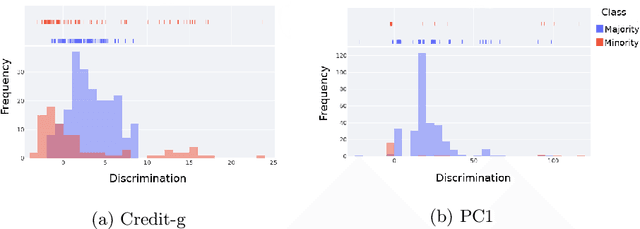Marcelle P. Mota
Explanation-by-Example Based on Item Response Theory
Oct 04, 2022



Abstract:Intelligent systems that use Machine Learning classification algorithms are increasingly common in everyday society. However, many systems use black-box models that do not have characteristics that allow for self-explanation of their predictions. This situation leads researchers in the field and society to the following question: How can I trust the prediction of a model I cannot understand? In this sense, XAI emerges as a field of AI that aims to create techniques capable of explaining the decisions of the classifier to the end-user. As a result, several techniques have emerged, such as Explanation-by-Example, which has a few initiatives consolidated by the community currently working with XAI. This research explores the Item Response Theory (IRT) as a tool to explaining the models and measuring the level of reliability of the Explanation-by-Example approach. To this end, four datasets with different levels of complexity were used, and the Random Forest model was used as a hypothesis test. From the test set, 83.8% of the errors are from instances in which the IRT points out the model as unreliable.
 Add to Chrome
Add to Chrome Add to Firefox
Add to Firefox Add to Edge
Add to Edge